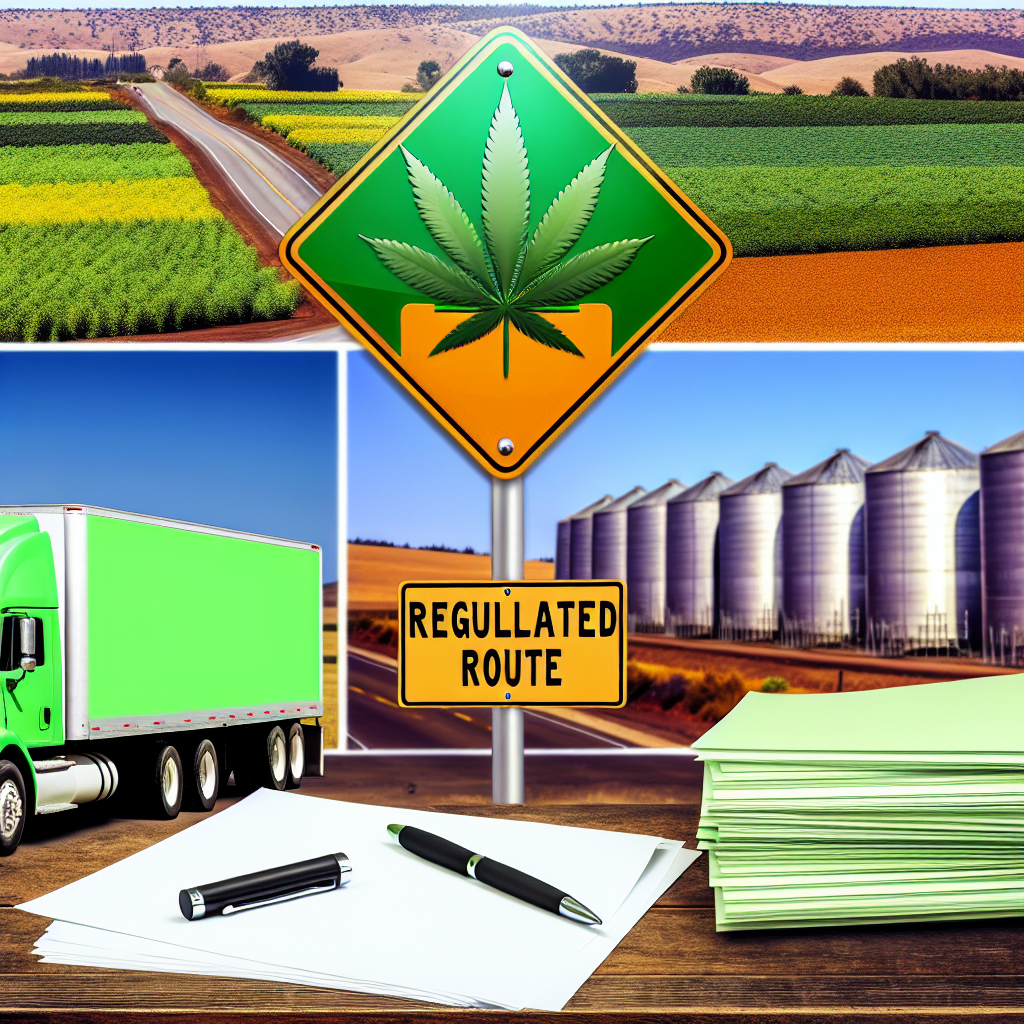Cannabis Transportation Regulations: Compliance and Security
Introduction: Navigating the Complex World of Cannabis Transport
The cannabis industry is expanding rapidly, fueled by widespread legalization and increasing demand. However, one of the most complex and highly regulated aspects of the industry is cannabis transportation. From seed to sale, cannabis products must be securely and legally transported to ensure compliance with local, state, and federal laws. Navigating these intricate regulations is a challenge for cannabis businesses, transporters, and law enforcement agencies alike.
Cannabis transportation is heavily regulated primarily due to public safety concerns, tax compliance, and preventing illegal market diversion. Because cannabis remains illegal at the federal level in the United States, interstate transportation remains strictly prohibited, even between two states where marijuana is legal. This restriction creates obstacles for businesses looking to expand across state lines and necessitates state-specific regulations for intrastate cannabis transportation.
Each legalized state has its own transportation requirements, many of which involve stringent security measures, real-time tracking, and licensing mandates for transport companies and personnel. Common regulations include the use of secure, locked containers, vehicle GPS tracking, manifest documentation, and pre-approved transport routes. Failure to comply with these mandates can result in severe penalties, including fines, license revocation, and legal consequences.
The legal cannabis industry relies heavily on safe and efficient transportation to fully function. Dispensaries, cultivators, manufacturers, and testing labs all depend on a secure supply chain to maintain product quality and ensure regulatory compliance. Furthermore, medical cannabis patients and consumers also depend on reliable delivery services—an area that has grown significantly since the COVID-19 pandemic.
In addition to commercial transportation, personal cannabis transport has its own set of legal restrictions. For example, in states where cannabis is legal, individuals must follow guidelines regarding how much they can carry, whether cannabis must be stored in a sealed container, and where it can be transported (such as inside a trunk rather than an easily accessible area of a vehicle).
Given the evolving nature of cannabis legislation, staying informed on transportation laws is critical for businesses and consumers alike. This article will explore the key regulations surrounding cannabis transportation, the impact of these laws on the industry, and relevant studies highlighting the importance of compliance and security.
The Importance of Cannabis Transport Regulations
Recognizing the significance of strict transportation regulations, various professional and scientific studies have analyzed their impact on the legal cannabis industry. Regulatory bodies aim to prevent product diversion to the black market, ensure consumer safety, and maintain oversight on tax revenues generated from legal sales.
A 2021 study published in The International Journal of Drug Policy explored the consequences of cannabis supply chain regulations, specifically transportation security protocols. Researchers found that states with stringent cannabis transport laws saw lower rates of product diversion and unauthorized sales. These findings reinforce the importance of secure transportation to discourage illicit distribution while maintaining regulatory oversight.
How Transportation Laws Reduce Criminal Activity
Another study conducted by the RAND Corporation in 2020 focused on the correlation between transportation restrictions and the reduction of criminal activities within legal cannabis markets. The report suggested that well-defined logistical regulations decreased opportunities for organized crime involvement by reducing unauthorized product movement. This study also highlighted the importance of requiring GPS tracking and extensive record-keeping to deter theft and regulatory breaches.
Medical Cannabis Transport and Patient Accessibility
Medical cannabis transport is another area of concern, particularly involving delivery services. Due to increased patient demand for convenient access, the Journal of Cannabis Research conducted a study in 2022 that examined the impact of medical marijuana delivery laws. Researchers observed that states allowing licensed delivery services experienced increased medical cannabis accessibility without a corresponding rise in illegal market activity—suggesting that well-regulated delivery models effectively serve patients without compromising compliance.
Transport Safety: Preventing Impaired Driving
Moreover, a study from the National Institute on Drug Abuse (NIDA) evaluated cannabis impairment laws and their relevance to transportation safety. While this study primarily focused on DUI risks, it underscored the critical need for safe transport practices, particularly for drivers involved in cannabis delivery or distribution. NIDA emphasized the importance of strict employee training for transporters to prevent impaired driving and maintain road safety.
Conclusion: The Future of Cannabis Transportation
Cannabis transportation is a vital yet highly regulated component of the legal marijuana industry. As state laws continuously evolve, businesses must remain up to date with security protocols, documentation mandates, and compliance requirements to avoid legal repercussions. Professional and medical research reinforce the significance of structured transport laws, demonstrating their role in preventing diversion to the illicit market, maintaining public safety, and improving patient access to medical cannabis.
For industry professionals and consumers alike, understanding these regulations is essential for navigating the complex landscape of cannabis distribution. With proper compliance, safe and legal cannabis transportation can contribute to the industry’s long-term stability and growth.
Concise Summary:
The cannabis industry faces complex transportation regulations aimed at preventing product diversion, ensuring consumer safety, and maintaining tax compliance. Studies show that strict transportation laws reduce criminal activity and improve medical cannabis accessibility, while emphasizing the need for safe transport practices. As the industry evolves, understanding these regulations is crucial for businesses and consumers to navigate the legal landscape of cannabis distribution.




